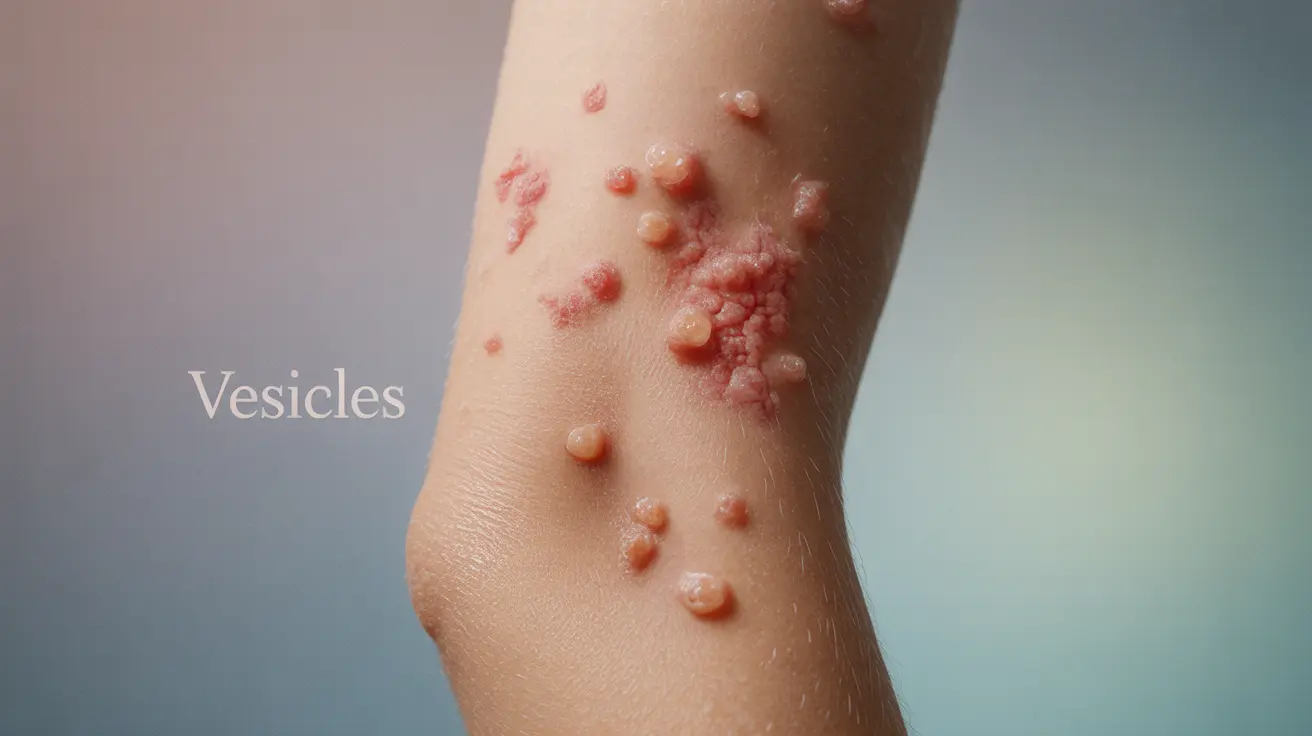Eczema, also known as atopic dermatitis, is a chronic inflammatory skin condition that affects millions of people worldwide. This common skin condition can cause significant discomfort and impact daily life, but with proper understanding and management, many people successfully control their symptoms and maintain healthy skin.
Whether you're newly diagnosed or seeking better ways to manage existing eczema, this comprehensive guide will help you understand the condition's symptoms, triggers, and effective treatment strategies.
Understanding Eczema Symptoms and Signs
Eczema manifests through various distinctive symptoms that can vary in severity from person to person. Common signs include:
- Dry, itchy skin
- Red or inflamed patches
- Rough, scaly, or thickened skin texture
- Small, raised bumps that may leak fluid
- Cracking or bleeding in severe cases
These symptoms typically appear in specific areas such as the hands, feet, ankles, wrists, neck, upper chest, eyelids, and inside the bends of the elbows and knees. The intense itching often leads to a cycle of scratching and inflammation that can worsen the condition.
Common Triggers and Causes
Understanding what triggers eczema flare-ups is crucial for managing the condition effectively. Several factors can contribute to outbreaks:
Environmental Triggers
- Extreme temperatures
- Low humidity
- Dust and pollen
- Harsh soaps and detergents
- Certain fabrics (especially wool)
Physical Factors
- Excessive sweating
- Stress and anxiety
- Lack of sleep
- Hormonal changes
Genetic and Medical Factors
Research suggests that eczema often runs in families and is linked to a compromised skin barrier function. People with eczema may have mutations in genes responsible for maintaining skin barrier health.
Effective Treatment Approaches
Medical Treatments
Several medical interventions can help manage eczema symptoms:
- Topical corticosteroids
- Immunomodulators
- Antihistamines for itch relief
- Prescription medications for severe cases
Natural and Home Remedies
Many people find relief through natural approaches:
- Moisturizing regularly with fragrance-free products
- Taking lukewarm baths with colloidal oatmeal
- Applying cool compresses to irritated areas
- Using natural oils like coconut or sunflower seed oil
Prevention and Lifestyle Management
Preventing flare-ups is often easier than treating them. Key preventive measures include:
- Maintaining a consistent skincare routine
- Using gentle, fragrance-free products
- Wearing soft, breathable fabrics
- Managing stress through relaxation techniques
- Keeping a symptom diary to identify triggers
Diet and Nutrition Considerations
While food allergies don't cause eczema, certain foods may trigger flare-ups in some people. Consider these dietary approaches:
- Identifying and avoiding personal food triggers
- Maintaining a balanced diet rich in anti-inflammatory foods
- Staying well-hydrated
- Consider incorporating omega-3 fatty acids
Frequently Asked Questions
What are the common symptoms and signs of eczema to look out for? The most common signs include persistent itching, red or inflamed patches, dry and scaly skin, and small bumps that may leak fluid when scratched. These symptoms often appear in specific body areas and can vary in severity.
What are the main causes and triggers that make eczema flare up? Common triggers include environmental factors (temperature changes, allergens), stress, certain fabrics, harsh soaps, and sometimes specific foods. Genetic factors also play a significant role in eczema development.
How can eczema be effectively treated and managed at home and with medication? Treatment typically involves a combination of medical interventions (such as topical corticosteroids) and home care practices like regular moisturizing, avoiding triggers, and maintaining good skin hygiene. Severe cases may require prescription medications.
What lifestyle changes and skincare routines help prevent eczema flare-ups? Key preventive measures include maintaining a consistent skincare routine, using gentle products, wearing appropriate clothing, managing stress, and keeping the skin well-moisturized.
Are there specific foods or environmental factors that worsen eczema symptoms? While individual triggers vary, common environmental factors include dust, pollen, extreme temperatures, and certain chemicals. Some people may experience flare-ups related to specific foods, though this varies by individual.




